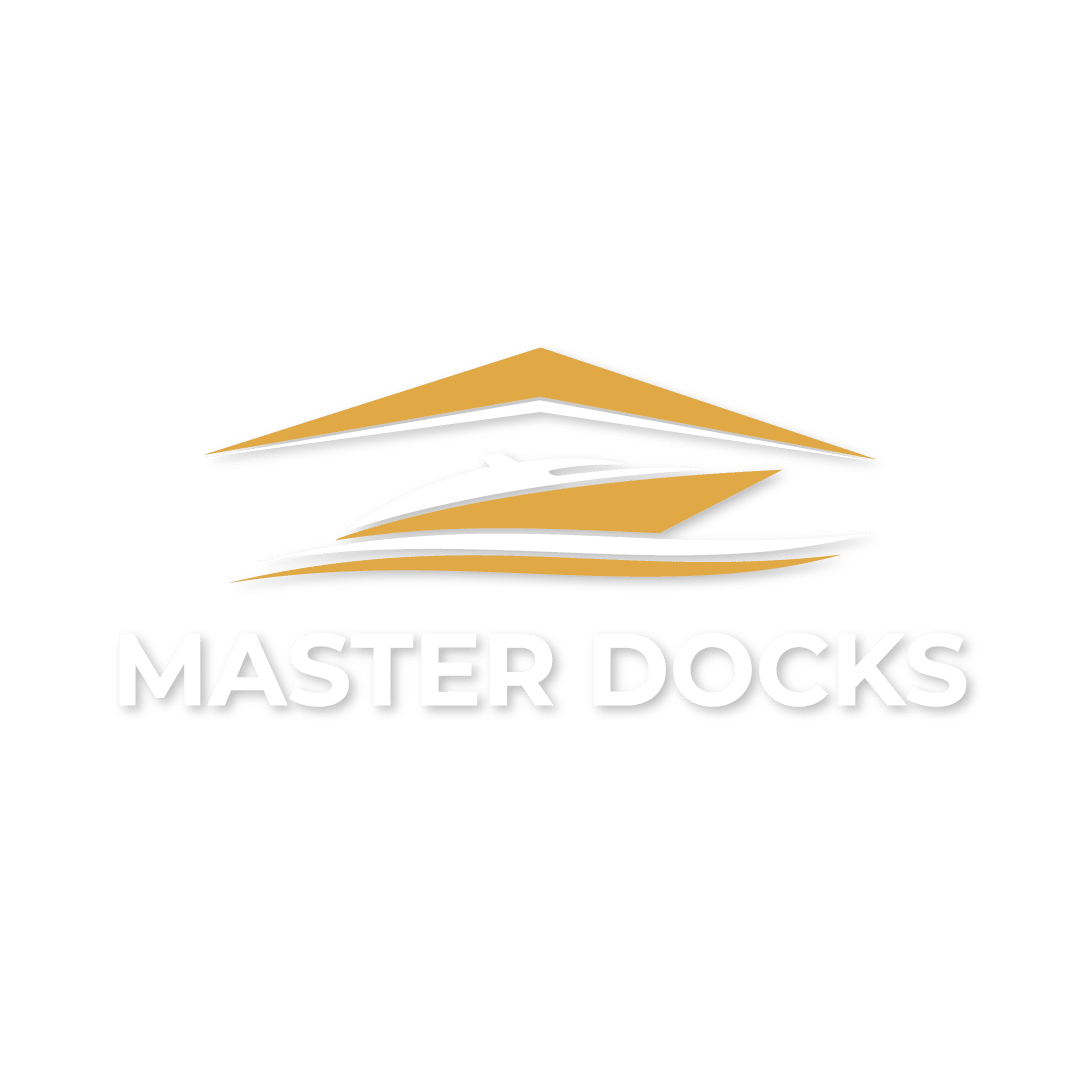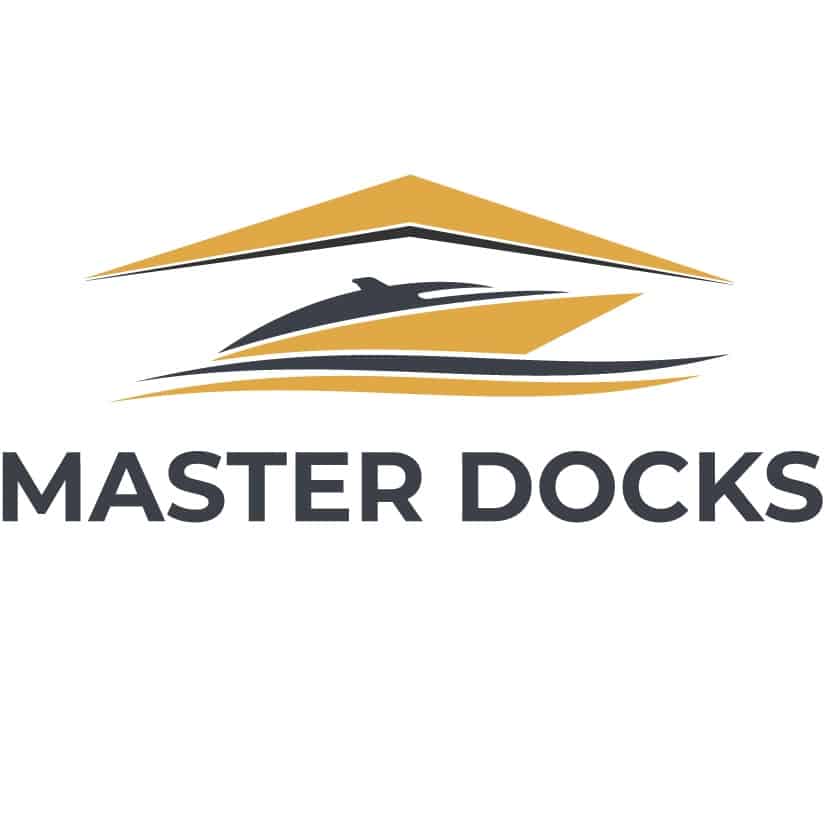Choosing the right boat lift system is a crucial decision every boat owner faces. With the myriad of options available in the market, hydraulic and cable boat lifts stand out due to their functionality, reliability, and versatility. This article aims to delve into a comprehensive comparison between hydraulic versus cable boat lift systems, their operational efficiencies, maintenance requirements, durability, and cost-effectiveness. Understanding these aspects will enable you to make an informed decision tailored to your specific needs.
Additionally, we will offer insights into how each boat lift system, whether it’s floating or standalone, aligns with the bespoke services we provide at Master Docks. From custom floating boat docks, boat lift installations and repairs, to lake permitting support, our expertise covers a wide range of services designed to enhance your marine experience.
Let’s uncover which boat lift system — hydraulic or cable — best suits your maritime lifestyle.
Cable Boat Lifts
Cable boat lifts, on the other hand, utilize a system of pulleys and cables to hoist boats out of the water. Driven either by electric or manual power, this type boasts versatility and adaptability to various water levels and boat types. Their functionality stems from a straightforward design which allows for easy adaptation to different boat sizes and weights, providing a cost-effective solution for boat lifting needs.
With Master Docks’ expertise in integrating cable boat lifts with custom floating docks and other installations, customers enjoy a tailored approach that meets their specific maritime requirements while ensuring robust support and remarkable service longevity.
Pros of Cable Boat Lifts
Cable boat lifts are lauded for their cost-effectiveness, making them an accessible option for a wide array of boat owners. These lifts can easily be adapted to suit different boat sizes and water depths, offering flexibility that is vital for areas with fluctuating water levels. The simplicity of the cable lift design contributes to ease of use and straightforward maintenance procedures. Clients choosing cable lifts can anticipate lower initial investment costs without significantly compromising quality or functionality.
Furthermore, Master Docks provides comprehensive services that seamlessly integrate with cable boat lift systems, including custom installations and meticulous repairs, ensuring that even the most budget-conscious customers receive high-quality and durable marine solutions. Our expert team also assists in optimizing the setup to enhance efficiency and performance, showcasing our commitment to delivering value and satisfaction through our specialized services.
Cons of Cable Boat Lifts
Despite their advantages, cable boat lifts do necessitate regular maintenance to prevent wear and tear, especially in the cables and pulleys. This maintenance is crucial to ensure longevity and safety, as neglected cables can lead to malfunctions or, in worse cases, accidents. In environments with saltwater, the risk of corrosion further increases the need for vigilant maintenance practices.
Master Docks recognizes these challenges and offers tailored maintenance and repair services to mitigate these issues. Our expertise not only ensures that cable boat lifts remain in optimal condition but also prolongs their lifespan, providing peace of mind to boat owners and ensuring their investment is protected.
Hydraulic Boat Lifts
Hydraulic boat lifts operate using fluid mechanics to lift and lower boats in and out of the water. This system employs a hydraulic pump that pushes fluid through cylinders, moving the lift in a smooth, consistent manner. One of the major attractions of hydraulic boat lifts is their quiet operation, making them preferable in residential areas and for those seeking a seamless user experience.
At Master Docks, our expertise in installing and servicing hydraulic boat lifts ensures that customers benefit from a system that aligns with the highest standards of efficiency, durability, and environmental compatibility, perfectly complementing our range of marine services.
Advantages of Hydraulic Boat Lifts
Hydraulic boat lifts offer a premium experience in boat lifting technology, characterized by their remarkable durability, ease of operation, and superior weight capacity. These systems are designed to operate smoothly and quietly, minimizing disturbance in tranquil marine settings. The precision in their lifting mechanism allows for a safer and more controlled movement of the vessel, significantly reducing the risk of damage during transit.
Moreover, the hydraulic lifts’ ability to handle a broad range of boat weights and sizes makes them a versatile solution for various boating needs. At Master Docks, we specialize in the integration of hydraulic systems, ensuring they are perfectly aligned with our clients’ specific maritime infrastructures.
Our team’s expertise extends to custom installations and routine maintenance, ensuring that your hydraulic boat lift remains a reliable and efficient part of your boating experience, thus embodying a worthwhile long-term investment in the health and accessibility of your watercraft.
Disadvantages of Hydraulic Boat Lifts
The sophistication of hydraulic boat lifts is accompanied by a few drawbacks. The initial investment for a hydraulic system is generally higher than that of a cable lift, potentially placing it out of reach for some budgets. Additionally, hydraulic lifts may require a reliable source of electricity to operate, which can be a concern in remote locations. However besides 220 volt systems solar options are available.
Hydraulic boat lifts use hydraulic oil and in case of a leak hydraulic fluid can leak into the water potentially causing an environmental concern. At Master Docks, we only use biodegradable water based hydraulic fluid like Sunfluid or H2Oil.
Servicing such sophisticated machinery also demands expertise—specialized attention that can incur additional costs. At Master Docks, we address these concerns by offering competitive pricing, expert installation, and maintenance services.
Our team is adept at streamlining hydraulic boat lift integration, ensuring that our end-to-end service adds value and reduces the concerns associated with costs and complexity.
Hydraulic Versus Cable Boat Lifts: Which is for You?
When debating between hydraulic versus cable boat lifts, it’s important to weigh their functional differences against your specific needs. Hydraulic systems are known for their quick, quiet operation and often require less maintenance than their cable counterparts. They’re particularly suited for heavy-duty lifting and can offer a longer lifespan if properly maintained.
Conversely, cable boat lifts are preferred for their versatility and lower upfront costs. They are better suited for areas with variable water levels and are relatively easier to adjust for different boat types. However, they do demand consistent maintenance to maintain performance.
At Master Docks, we ensure that our clients are equipped with the knowledge to choose a lift that not only complements their boating lifestyle but is also synchronized with the surrounding environment. We stand ready to provide expert advice, installation, and maintenance for whichever boat lift system you decide upon.
Boat Lifts at Master Docks
Master Docks is at the forefront of providing exceptional boat lift solutions that are customized to meet each client’s unique maritime needs. Whether you’re leaning towards the robust, low-maintenance nature of a hydraulic lift or the cost-effectiveness and adaptability of a cable system, we provide full-scale services that encompass installation, repair, and maintenance. Additionally, we offer support with lake permitting to ensure compliance with local regulations.
Our deep understanding and experience in both hydraulic and cable boat lifts position us to deliver not just products, but comprehensive solutions and dependable advice, ensuring compatible, seamless integration for your waterfront property.

